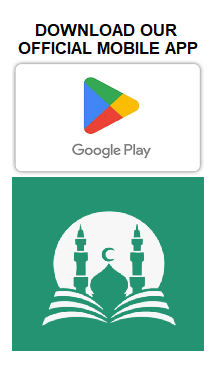Exploring the Benefits to Learn Arabic Language Classes

In today’s globalized world, learning a new language can open up numerous opportunities, both personally and professionally. Arabic, a language spoken by more than 420 million people worldwide, is increasingly gaining attention. Whether you’re interested in exploring the rich cultural heritage of the Arab world, enhancing your career prospects, or simply challenging yourself with a new language, Arabic language classes could be the right choice for you.
Why Learn Arabic?
Cultural Understanding
Arabic is the gateway to understanding a vast and diverse region that spans more than 20 countries. From ancient history to modern-day politics, learning Arabic can provide deeper insights into the Arab world’s cultural, historical, and social contexts.
Professional Opportunities
With the increasing importance of the Middle East in global affairs, proficiency in Arabic can be a significant asset in various fields, such as international business, government, journalism, and education. Companies and organizations are actively seeking individuals who can bridge the cultural and linguistic gaps.

Cognitive Benefits
Learning a new language like Arabic also offers cognitive benefits. It can improve memory, enhance problem-solving skills, and boost overall brain function. The challenge of mastering Arabic script and grammar offers a rewarding mental workout.
📚 Explore Our Latest Islamic Courses 📚
Where Can I Learn Arabic?
Whether you are in Chicago, NYC, or anywhere else, there are numerous options to start your Arabic learning journey. Here are some popular ways:
Arabic Language Schools
Traditional language schools offer structured classes with experienced instructors. They provide a comprehensive curriculum, covering everything from basic vocabulary to advanced conversation skills. Some well-known schools also offer cultural immersion programs, which can significantly enhance your learning experience.
Online Arabic Courses
For those who prefer flexible learning options, online Arabic courses are a great choice. Platforms like Coursera, Rosetta Stone, and Duolingo offer courses that cater to different proficiency levels, from Arabic for beginners to advanced conversational classes. Online courses often include interactive lessons, quizzes, and opportunities for live practice with native speakers.
Community Colleges and Universities
Many community colleges and universities offer Arabic language courses as part of their curriculum. These courses often provide a more formal education experience and may include credits that can be applied towards a degree.

by Ling App (https://unsplash.com/@lingapp)
📚 Explore Our Latest Islamic Courses 📚
How to Choose the Best Arabic Language Course
When deciding on the right Arabic language course, consider the following factors:
Course Content
Ensure the course covers a broad range of topics, including reading, writing, speaking, and listening. A well-rounded curriculum is essential for mastering the language.
Teaching Methodology
Look for courses that employ a variety of teaching methods, such as interactive activities, multimedia resources, and practical conversation exercises. This diversity can enhance your learning experience and help you retain information better.
Instructor Expertise
Check the qualifications and experience of the instructors. Native speakers with teaching credentials often provide the most authentic and effective learning experiences.
Flexibility and Accessibility
Consider your schedule and learning style. Online courses offer flexibility and convenience, allowing you to learn at your own pace. If in-person interaction is important to you, look for local classes or community programs.
Certification
If you are looking to add Arabic language skills to your resume, seek courses that offer a certificate upon completion. This can be a valuable credential for job applications and career advancement.
📚 Explore Our Latest Islamic Courses 📚
Tips for Learning Arabic Effectively
Consistent Practice
Regular practice is key to language learning. Dedicate time each day to studying Arabic, whether it’s through structured lessons or casual conversation practice.
Engage with Native Speakers
Interacting with native Arabic speakers can greatly enhance your learning. Look for language exchange programs, join Arabic-speaking communities online, or hire a tutor for personalized guidance.
Immerse Yourself in the Culture
Watching Arabic films, listening to Arabic music, and reading Arabic literature can provide cultural context and improve your language skills. Immersing yourself in the culture makes learning more enjoyable and effective.
Use Technology to Your Advantage
Leverage language learning apps and online resources to supplement your studies. Tools like Anki for vocabulary flashcards and language learning apps can reinforce what you’ve learned in class.
Conclusion
Arabic language classes offer a wealth of benefits, from cultural enrichment to professional advancement. Whether you choose an online course, a local language school, or a university program, the key is to stay committed and curious. With dedication and the right resources, you’ll find yourself speaking Arabic with confidence.

by Akeyodia – Business Coaching Firm (https://unsplash.com/@akeyodia)
Embark on your Arabic language journey today and unlock new perspectives and opportunities. Whether you’re learning for personal growth, career development, or cultural exploration, mastering Arabic will be a rewarding and enriching experience.








